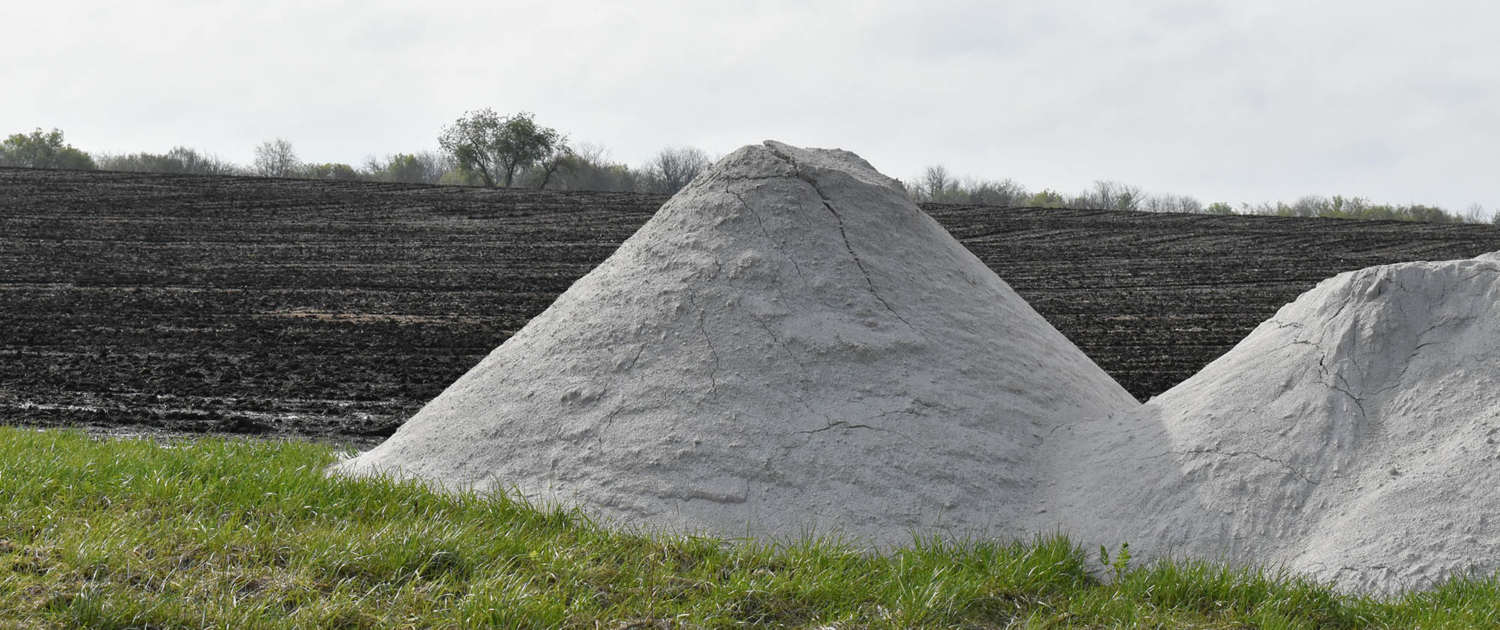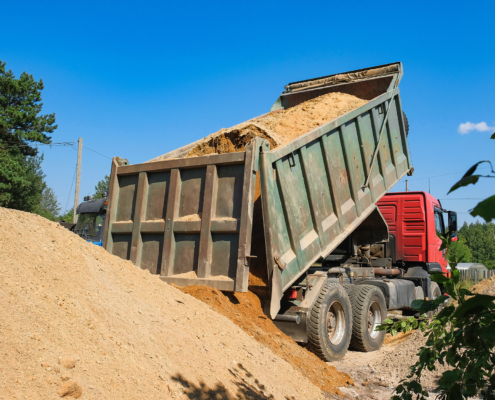 https://pontotocsandandstone.com/wp-content/uploads/2025/09/Frac-Sand-Market-Trends-and-Forecasts.jpg
1250
2000
AbstraktMarketing
/wp-content/uploads/2021/08/Pontotoc-White-Logo.png
AbstraktMarketing2025-09-05 20:26:142026-03-04 16:14:25Navigating Growing Demand: Frac Sand Market Trends and Forecasts
https://pontotocsandandstone.com/wp-content/uploads/2025/09/Frac-Sand-Market-Trends-and-Forecasts.jpg
1250
2000
AbstraktMarketing
/wp-content/uploads/2021/08/Pontotoc-White-Logo.png
AbstraktMarketing2025-09-05 20:26:142026-03-04 16:14:25Navigating Growing Demand: Frac Sand Market Trends and ForecastsThe Role of Crushed Limestone In Agriculture
Crushed limestone has become an integral part of the agricultural industry for its numerous benefits. Limestone enhances crop yields and ensures sustainable farming practices by improving soil health and regulating pH levels. In this article, we’ll explore the different types of limestone used and its various applications in agriculture. We will also discuss the numerous benefits it provides. Continue reading to see how your operation can benefit and grow today.
Why Is Crushed Limestone Important for the Agricultural Industry?
The role of crushed limestone in agriculture is critical as a fundamental ingredient in soil management. It is widely used to modify the soil pH, effectively neutralizing soil acidity. The usage of crushed limestone, predominantly calcium carbonate with traces of magnesium, has been recognized by farmers and agricultural organizations worldwide.
Soil acidity is often a critical constraint to crop production. Acid soils affect not only the roots of plants but also the availability of essential elements that are necessary for their growth. Lime or liming materials, which marginally consist of crushed limestone, have proven effective in dealing with acid soils.
Considerations Before Using Crushed Limestone Within Agricultural Processes
Knowing the soil pH is essential before applying any liming material. Soil tests aid in determining the degree of soil acidity, the type, and the amount of liming material needed. The effectiveness of a liming material is always based on its neutralizing value and the fineness of its grind. Soil experts usually recommend using a more finely ground limestone, such as liquid lime, for faster and more even distribution in soil.
The Different Types of Limestone Used In Agriculture
Limestone used in agriculture is all solid limestone crushed into different sizes. The two commonly used lime types in agriculture are dolomitic lime and calcitic lime. These two differ in magnesium and calcium content and are used based on the crop’s nutrient needs or soil test results.
Magnesium-Based Dolomitic Lime
Dolomitic lime-crushing plant or coarse limestone, known by its agricultural term “builder’s lime,” is excellent in providing magnesium, a vital plant nutrient. This type of liming material is recommended when soil tests indicate a magnesium deficiency and soil acidity. Thanks to its slow-releasing nature, dolomitic lime provides long-term improved nutrition and better results in crop yield.
Calcium-Based Calcitic Lime
Calcitic lime contains calcium carbonate. The role of this lime in agricultural soils involves providing calcium to crops and improving water penetration for acidic soils. Farmers use calcitic lime when the soil pH levels are low, and soil tests indicate no magnesium deficiency. Many agricultural organizations prefer calcitic lime because it is concentrated and activates quicker than coarse limestone. Plus, it is a good source of calcium, a required nutrient for most crops.
Remember, over-liming can be harmful and decrease certain nutrients’ availability. As different crops have different pH requirements, it’s highly recommended to have a professional soil test done to ensure the correct limestone type and amount applied.

What Is Limestone Used for In Agriculture?
Although a seemingly simple ingredient, Crushed limestone plays a critical role in agriculture. It is primarily a soil amendment used in farming to improve the quality and structure of acid soils.
Soil Amendment
Acid soils, which comprise a large portion of the world’s agricultural lands, can impede the growth and yield of crops. This is where the role of crushed limestone in agriculture shines as one of the essential elements in soil amendment. Limestone is primarily composed of calcium carbonate, a compound capable of neutralizing soil acidity. By pulverizing large chunks of limestone into a fine powder or using liquid lime, these liming materials help to counterbalance the pH level and bring soil back to a receptive condition for planting.
pH Regulation
One of the key benefits of limestone is its ability to regulate soil pH. The soil’s pH level is determined through a soil test and is an essential element for plant growth. Most crops prefer a slightly acidic to neutral pH range. Remember, liming materials are not instant; they take time to change the soil pH and must be added in advance of planting to be effective.
Reducing Aluminum Toxicity
Highly acidic soils can result in aluminum toxicity. Limestone mitigates this toxicity effectively by making aluminum unavailable for plant uptake, thereby protecting the crop. Liming materials by reducing soil acidity can prevent the threatening effects of aluminum toxicity on crops.
The role of crushed limestone available at Pontotoc Sand & Stone can assist any agricultural operation. Check out what we offer.
The Many Limestone Benefits for Agriculture
Other than neutralizing soil acidity, limestone offers numerous additional agricultural benefits. It provides essential nutrients, easing the process on your end, and allows you to think about other core functions of your operation.
Provides Calcium and Magnesium
Limestone, rich in calcium and magnesium, supplements the soil with these crucial nutrients. Both elements play a vital role in plant growth and are both found in limestone.
Increases Microbial Activity
By effectively controlling soil pH, limestone provides an environment conducive to microbial activity. These microorganisms contribute to the nutrient cycle, resulting in healthier and more productive soils.
Boosted Plant Structure
Calcium, an essential element found in limestone, strengthens the plant’s cellular structure, leading to sturdier and healthier crops. The use of limestone can indirectly result in stronger and more productive crops.
Extended Lifespan of Crops
By reducing soil acidity, limestone enhances the lifespan of crops. A neutral pH level allows nutrients to be more accessible to the plants, ultimately leading to their extended lifespan and productivity.
Partner With Pontotoc Sand & Stone for the Best Uses of Limestone In Agriculture
At Pontotoc Sand & Stone, we understand the various applications of crushed limestone in agriculture, particularly in the control of soil acidity. With our range of liming materials, we are ready to assist agriculturalists in maintaining healthy soil and achieving desirable crop yields. Reach out to our team of experts to get the process started today.
Related Postings
 https://pontotocsandandstone.com/wp-content/uploads/2025/09/Frac-Sand-Market-Trends-and-Forecasts.jpg
1250
2000
AbstraktMarketing
/wp-content/uploads/2021/08/Pontotoc-White-Logo.png
AbstraktMarketing2025-09-05 20:26:142026-03-04 16:14:25Navigating Growing Demand: Frac Sand Market Trends and Forecasts
https://pontotocsandandstone.com/wp-content/uploads/2025/09/Frac-Sand-Market-Trends-and-Forecasts.jpg
1250
2000
AbstraktMarketing
/wp-content/uploads/2021/08/Pontotoc-White-Logo.png
AbstraktMarketing2025-09-05 20:26:142026-03-04 16:14:25Navigating Growing Demand: Frac Sand Market Trends and Forecasts https://pontotocsandandstone.com/wp-content/uploads/2025/08/How-Supply-Chain-Disruptions-Impact-Frac-Sand-Availability-and-Pricing.jpg
1250
2000
AbstraktMarketing
/wp-content/uploads/2021/08/Pontotoc-White-Logo.png
AbstraktMarketing2025-08-21 20:34:102026-03-04 16:14:26How Supply Chain Disruptions Impact Frac Sand Pricing and Availability
https://pontotocsandandstone.com/wp-content/uploads/2025/08/How-Supply-Chain-Disruptions-Impact-Frac-Sand-Availability-and-Pricing.jpg
1250
2000
AbstraktMarketing
/wp-content/uploads/2021/08/Pontotoc-White-Logo.png
AbstraktMarketing2025-08-21 20:34:102026-03-04 16:14:26How Supply Chain Disruptions Impact Frac Sand Pricing and Availability https://pontotocsandandstone.com/wp-content/uploads/2025/08/large-quary-for-frac-sand-mining.jpg
1250
2000
AbstraktMarketing
/wp-content/uploads/2021/08/Pontotoc-White-Logo.png
AbstraktMarketing2025-08-14 19:56:332026-03-04 16:14:26Understanding the Health and Environmental Impacts of Frac Sand Mining
https://pontotocsandandstone.com/wp-content/uploads/2025/08/large-quary-for-frac-sand-mining.jpg
1250
2000
AbstraktMarketing
/wp-content/uploads/2021/08/Pontotoc-White-Logo.png
AbstraktMarketing2025-08-14 19:56:332026-03-04 16:14:26Understanding the Health and Environmental Impacts of Frac Sand Mining